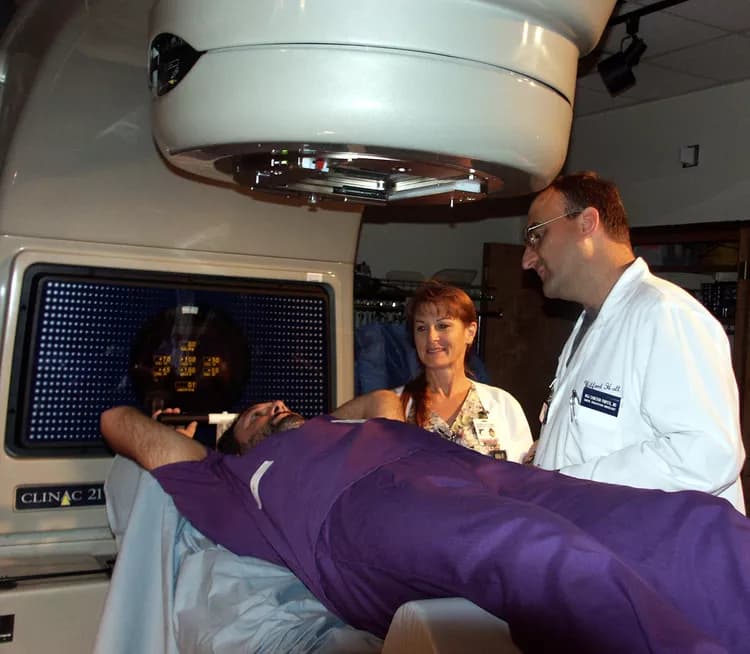
A Single Radiation Treatment Sufficiently Relieves Spinal Cord Compression Symptoms
CHICAGO – A common complication in people with metastatic cancer, spinal cord compression is a major detriment to quality of life. Radiation treatment is widely used to relieve pain and other symptoms, but there is no standard recommended schedule, and approaches currently vary. Findings from a phase III clinical trial show that a single radiation treatment is as effective as a full week of radiation.
The study will be featured in a press briefing today and presented at the 2017 American Society of Clinical Oncology (ASCO) Annual Meeting.
“Our findings establish single-dose radiotherapy as the standard of care for metastatic spinal canal compression, at least for patients with a short life expectancy,” said lead study author Peter Hoskin, MD, FCRP, FRCR, an oncologist at the Mount Vernon Cancer Centre in Middlesex, United Kingdom. “For patients, this means fewer hospital visits and more time with family.”
When cancer spreads to the bones, it most commonly affects the spine. Tumors in the spine can put pressure on the spinal canal, causing back pain, numbness, tingling, and difficulty walking. Many patients with advanced solid tumors develop bone metastases, and up to 10% of all patients with cancer will have metastatic spinal cord compression.
About the Study
The study enrolled 688 patients with metastatic prostate (44%), lung (18%), breast (11%), and gastrointestinal cancers (11%). The median age was 70 years, and 73% were male. The researchers randomly assigned patients to receive external beam spinal canal radiation therapy either as a single dose of 8 Gy or as 20 Gy split in five doses over five days.
The primary endpoint of the study was ambulatory status, measured on a four-point scale:
Grade 1: Able to walk normally
Grade 2: Able to walk with walking aid (such as cane or walker)
Grade 3: Has difficulty walking even with walking aids
Grade 4: Dependent on wheelchair
At study entry, 66% of patients had ambulatory status 1 to 2.
Key Findings
At eight weeks, 69.5% of patients who received single-dose radiation therapy and 73.3% of those who received five doses had ambulatory status 1 to 2, showing that both shorter- and longer-course radiation treatments helped patients stay mobile. The median overall survival was similar in the two groups – 12.4 weeks with single dose vs. 13.7 weeks with five doses (the difference was not statistically significant). The proportion of patients with severe side effects was similar in the two groups (20.6% vs. 20.4%), but mild side effects were less common in the single-dose group (51% vs. 56.9%).
Prof. Hoskin emphasized that early recognition and prompt treatment of spinal cord compression symptoms are critical to achieve best results with radiation therapy.
Study Limitations and Next Steps
“Longer radiation may be more effective for preventing regrowth of metastases in the spine than single-dose radiation. Therefore, a longer course of radiation may still be better for patients with a longer life expectancy, but we need more research to confirm this,” said Prof. Hoskin.
Patients with metastatic breast cancer were under-represented in this clinical trial, as were younger patients. For certain patients with spinal cord compression, surgery instead of or in addition to radiation therapy may be recommended.
This study was funded by Cancer Research UK.
View the full abstract.
Materials provided by American Society of Clinical Oncology. Note: Content may be edited for style and length.
Disclaimer: DoveMed is not responsible for the accuracy of the adapted version of news releases posted to DoveMed by contributing universities and institutions.
Related Articles
Test Your Knowledge
Asked by users
Related Centers
Related Specialties
Related Physicians
Related Procedures
Related Resources
Join DoveHubs
and connect with fellow professionals

0 Comments
Please log in to post a comment.